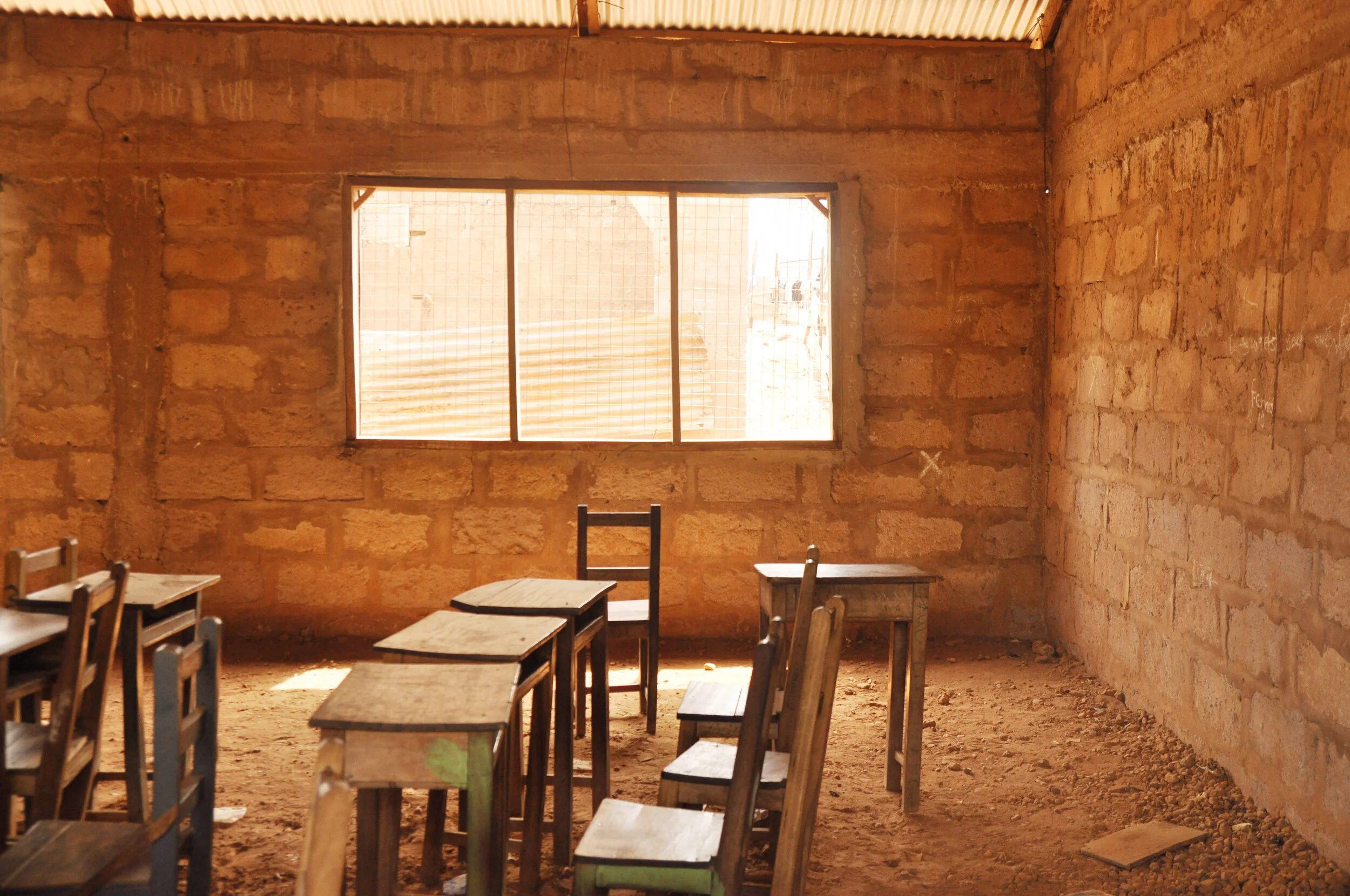School Is Better Than Fishing.
We travel across town to another school where our largest group of reintegrated children attends. They are all in class, but the Headmaster has allowed for us to use an adjacent open-air church building for our meeting with Nice. She walks in the church in her pressed school uniform, shy and curious about our visit.
Nice has been back in school for 4 years now, having been released from the village of Korpevikorpe in 2016. Now 13, she has lived several formative years under the care of Mercy Project Social Workers. School has not been easy for her, nor has the transition in her relationships at home; it’s taken time for Nice to feel at home and trust she’ll be cared for. But Nice is resilient, and she keeps showing up and continues to try. She’s made big improvements at school lately, placing 7th position in her class and bringing her English grade up 46 points last term.
Nice sits down next to her Social Worker, Portia, who helps translate her interview answers. It’s soon obvious that Nice is a normal 13-year-old girl with many thoughts and opinions. She carries more weight in her young life than most kids her age, but she has big dreams and hopes for a bright future. She now believes in her ability to accomplish great things and knows that she has people around her who will support her; it’s a gift to watch this sweet girl come to life.
Which class are you?
Class 5
What’s your best subject?
Math
Is it because you do well in math or because you enjoy math more than all the other subjects?
[Portia translating] She just enjoys it.
What do you want to be… what do you want to do after school?
Tailor
[Portia] Every time she has said teacher, so this is new!
Did you change your mind?
Yes
Do you like making dresses and looking nice more than teaching small children?
[laughs] Yes!
Ok. So you had Sister Winifred here and Portia too, your Social Workers. How have they helped you?
They’re nice. Able to provide what I need.
[Portia] Whatever she needs, she tells them, and they are able to provide for her. When she does something bad or wrong, we correct her to stay or stop whatever she is doing. Give her good advice.
Is there any one advice that has helped her or changed her life?
[Portia] That we have been most encouraging to her.
If she has to choose one person who has encouraged her the most, helped her the most in her whole life, who does she choose?
[Portia] A teacher, the French master, Mr. Osman. He has always been encouraging. Even when she is absent from school, the teacher has come to her house to check on her.
Does she have anything about Mercy Project that she doesn’t know or wants to know?
[Portia] All she knows is that we help them [the children]… we help build futures. That’s what she knows about Mercy Project.
Does she… remember what she was doing before she came to Yeji [home]?
[Portia] She was always on the lake fishing.
When she saw us come and we took her to ———- [transitional shelter], how was she feeling? Why?
[Portia] She felt good. When she was there, they provided her clothes.
If she sees some children fishing, how does she feel?
[Portia] That it’s not healthy. She wants them to also go to school. She likes school better than fishing.
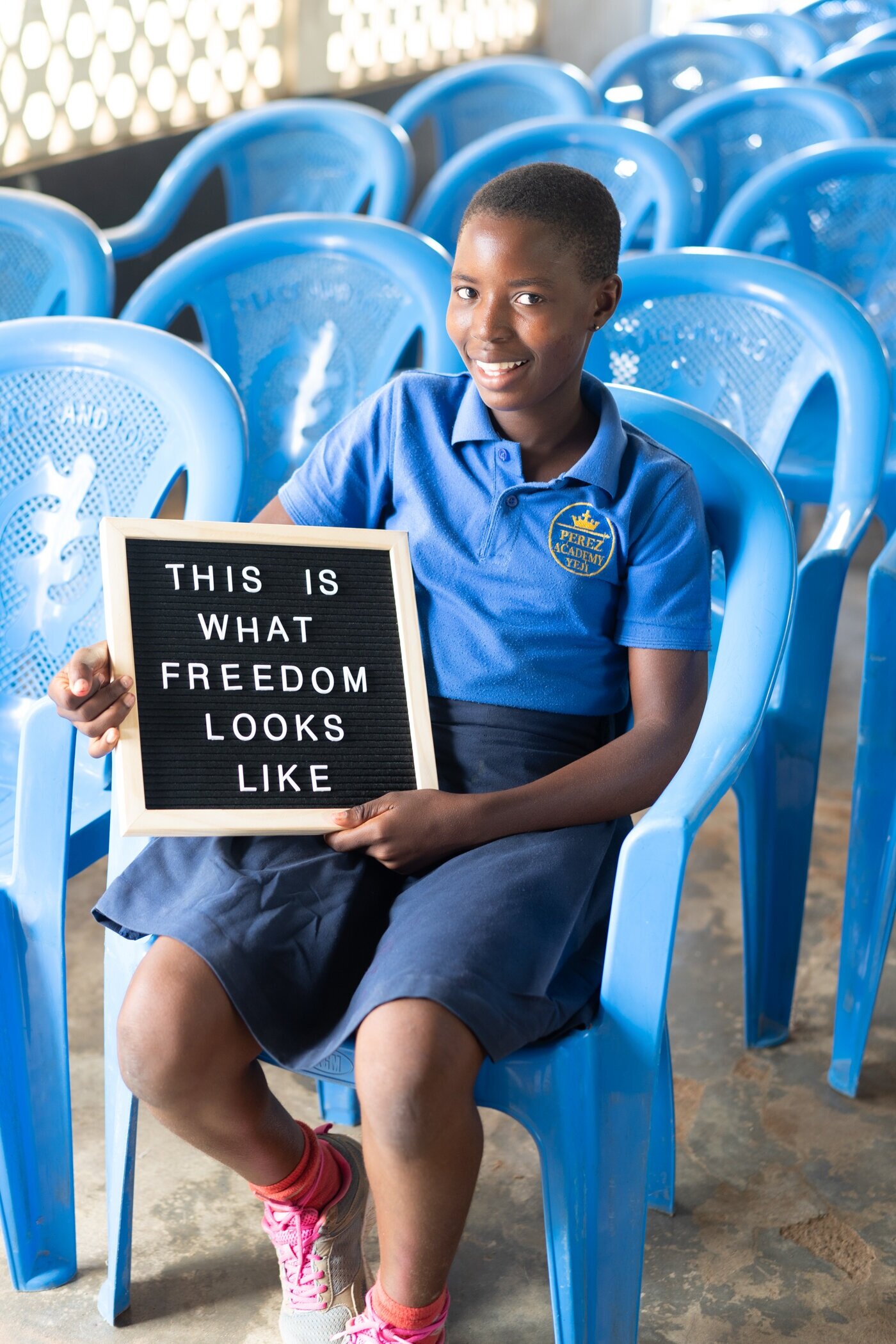

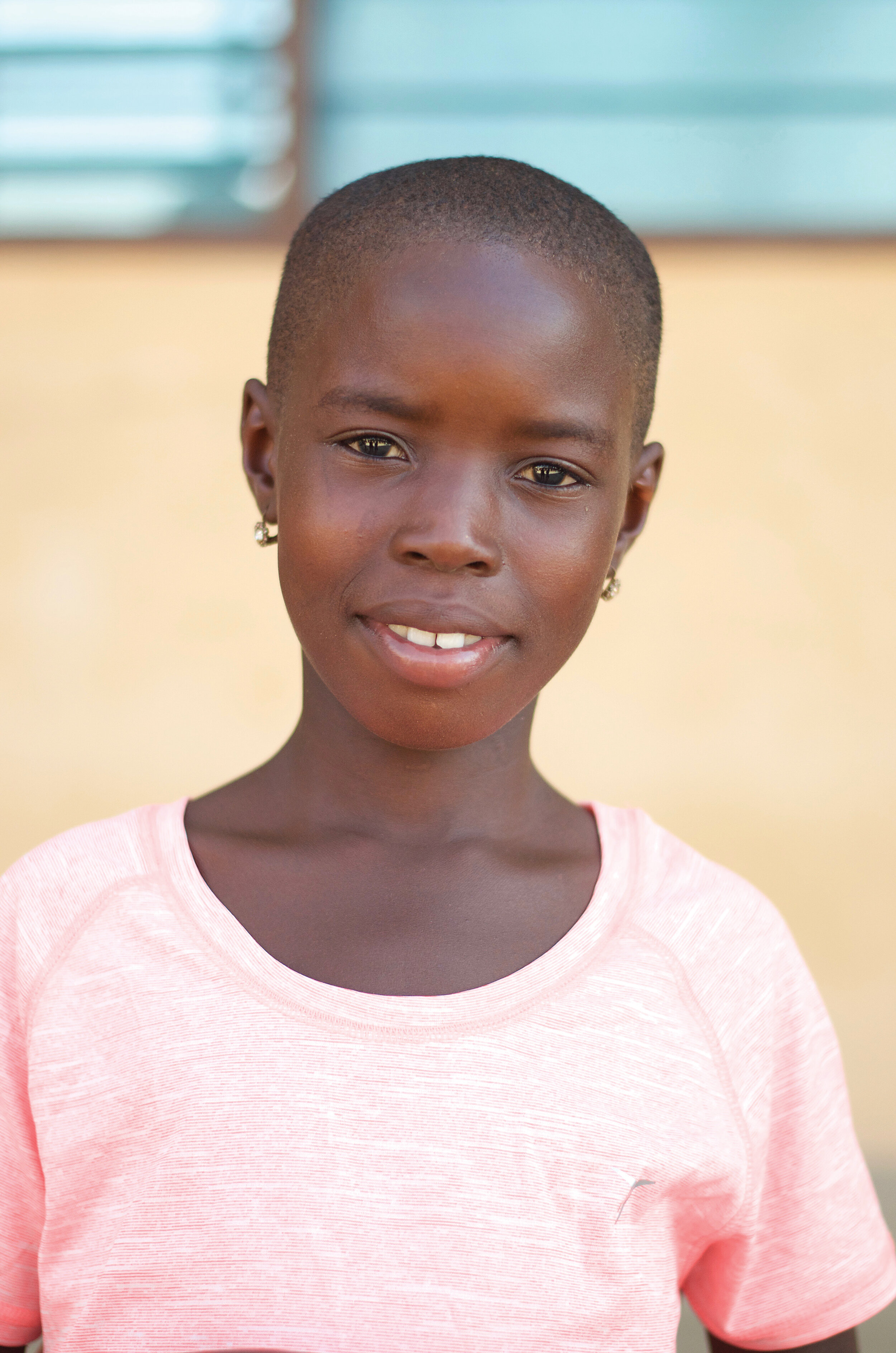
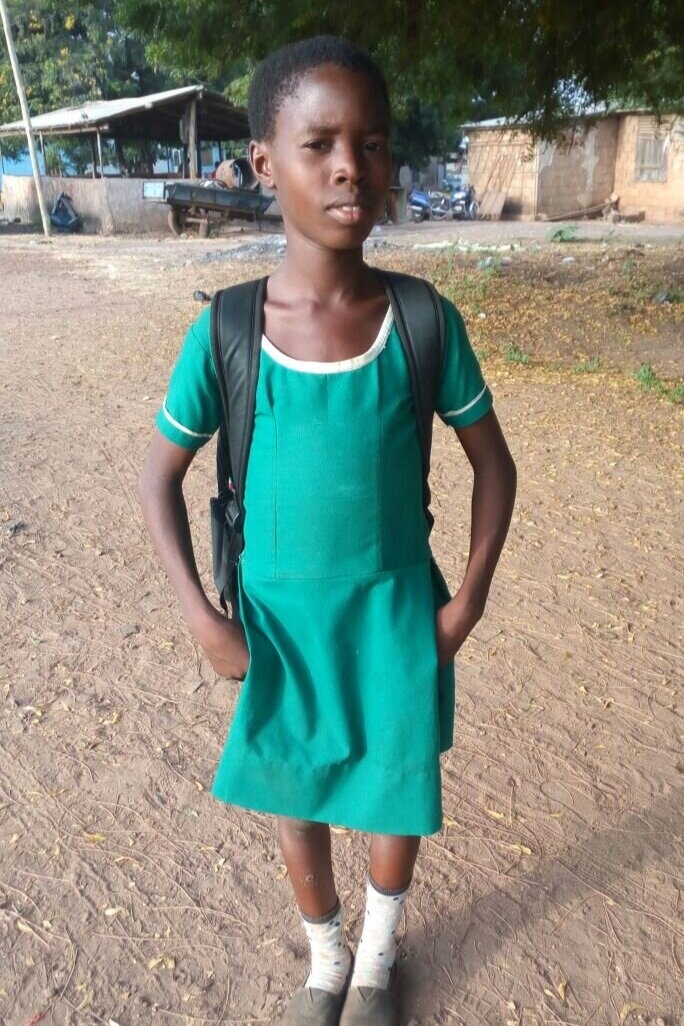
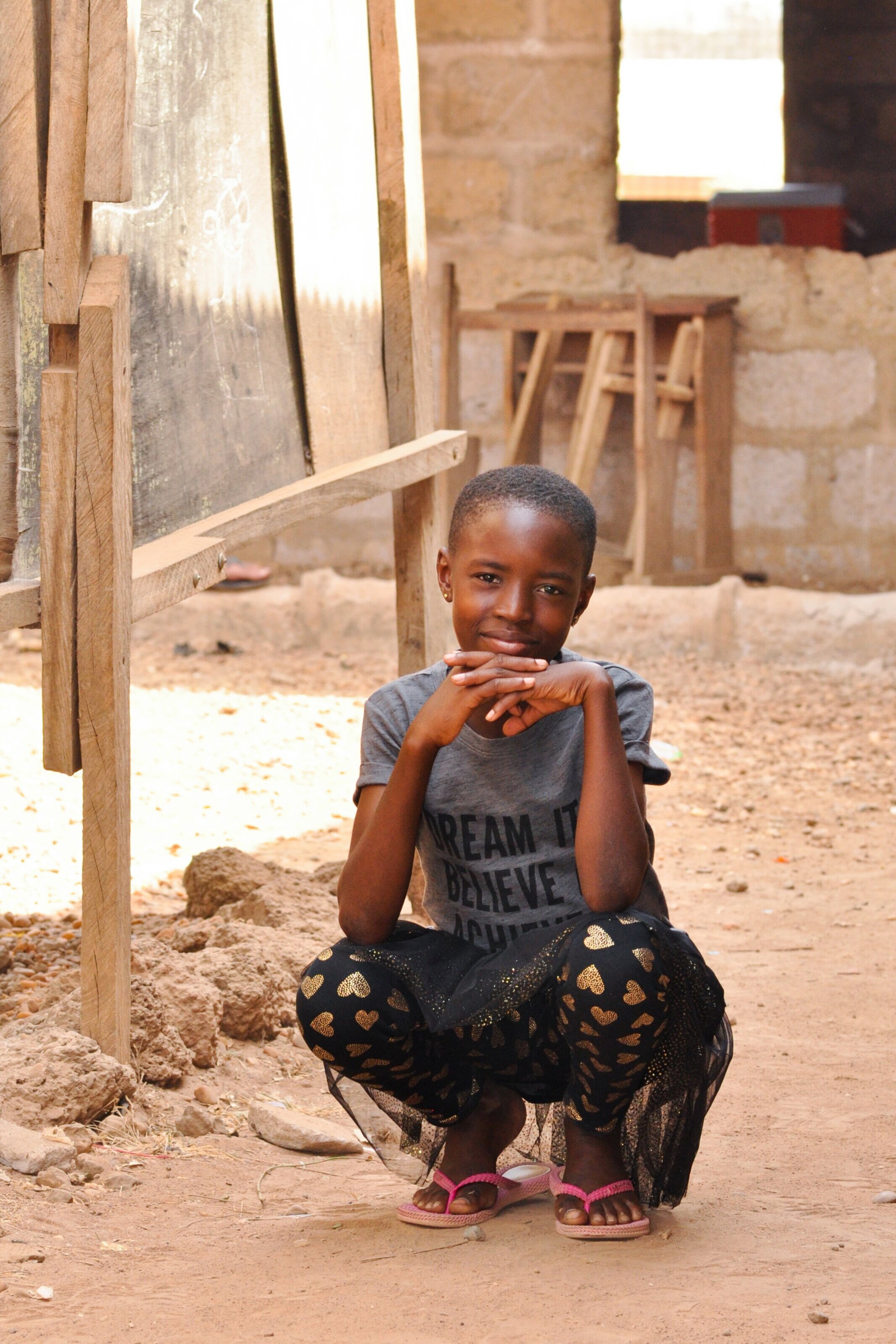
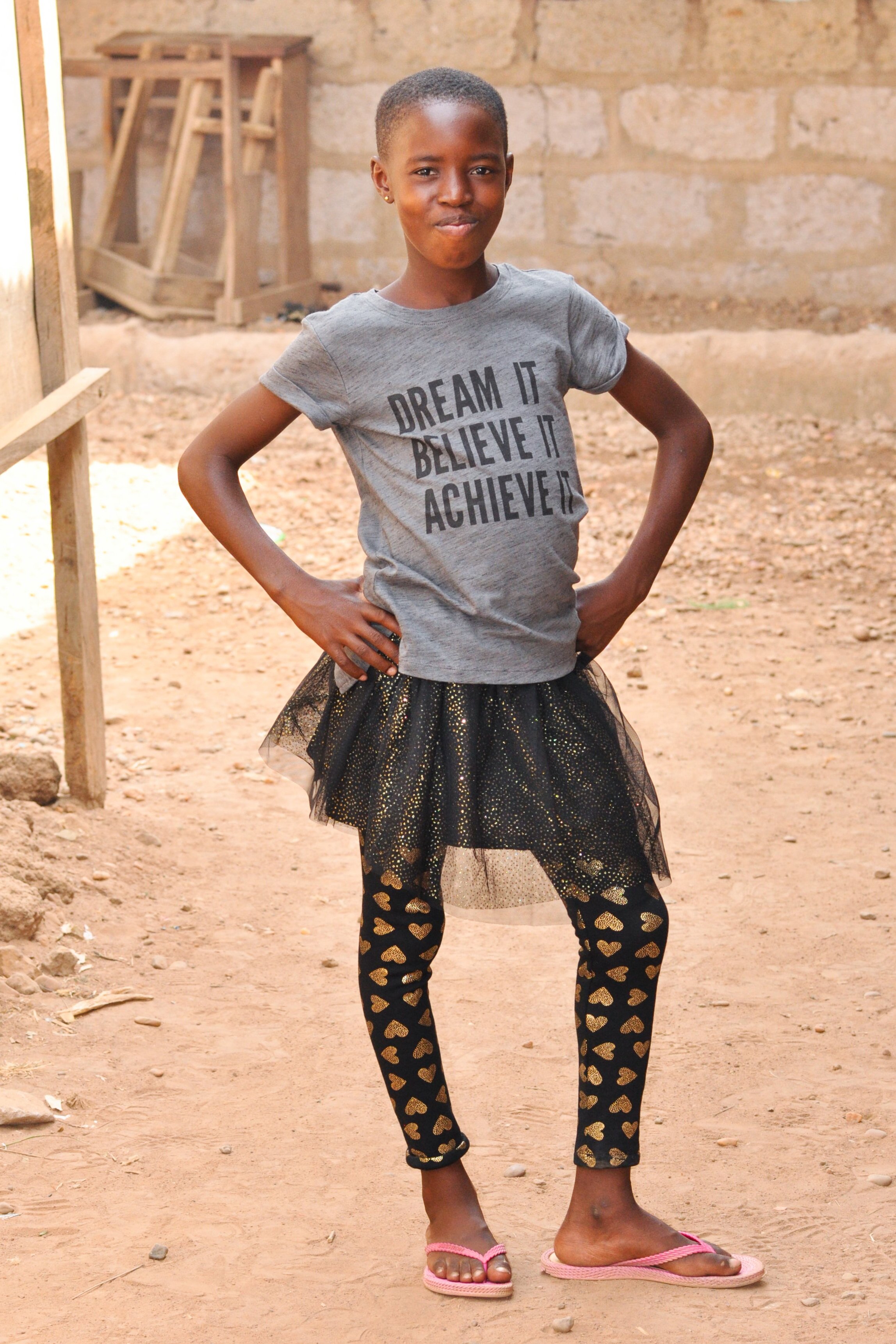
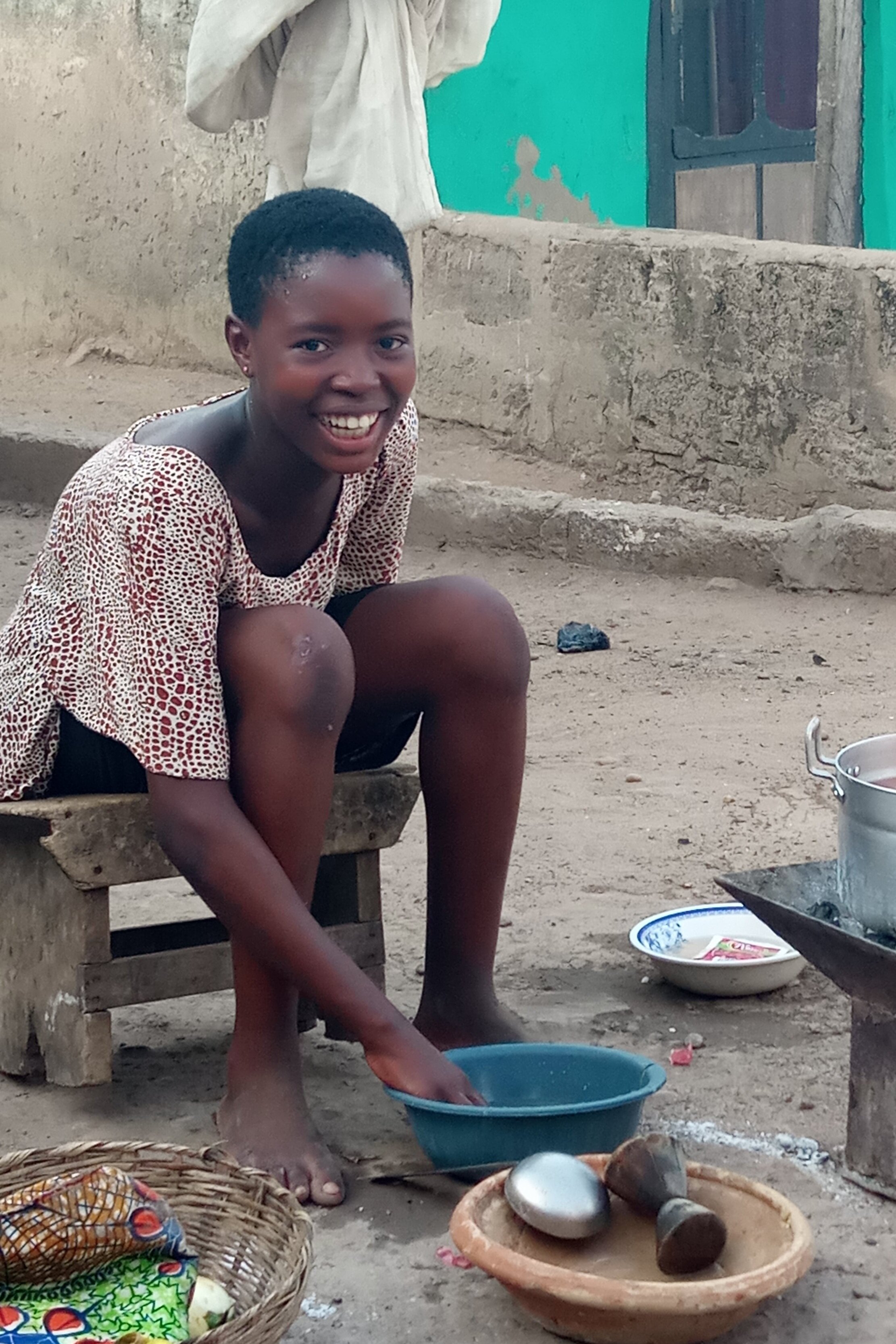
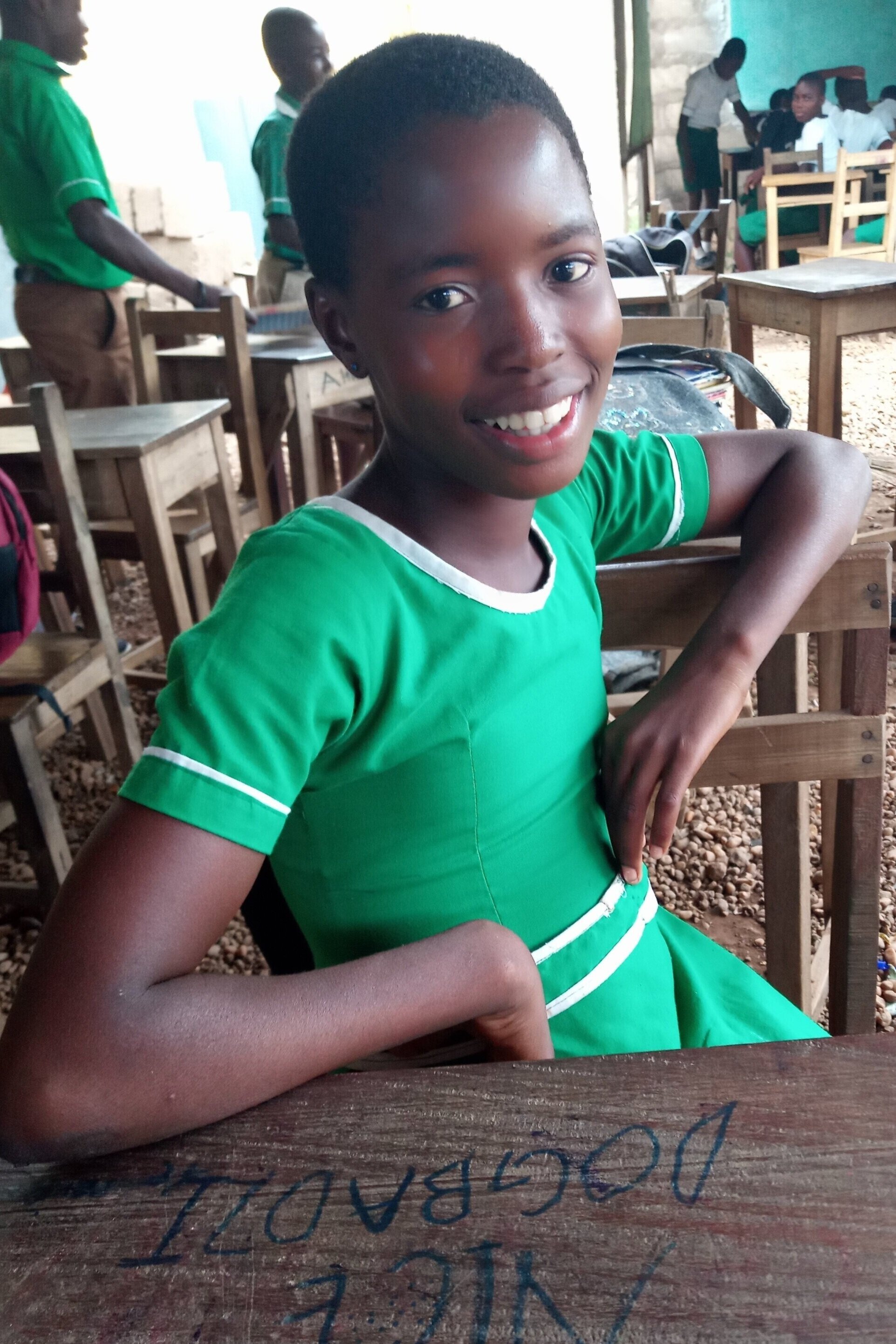
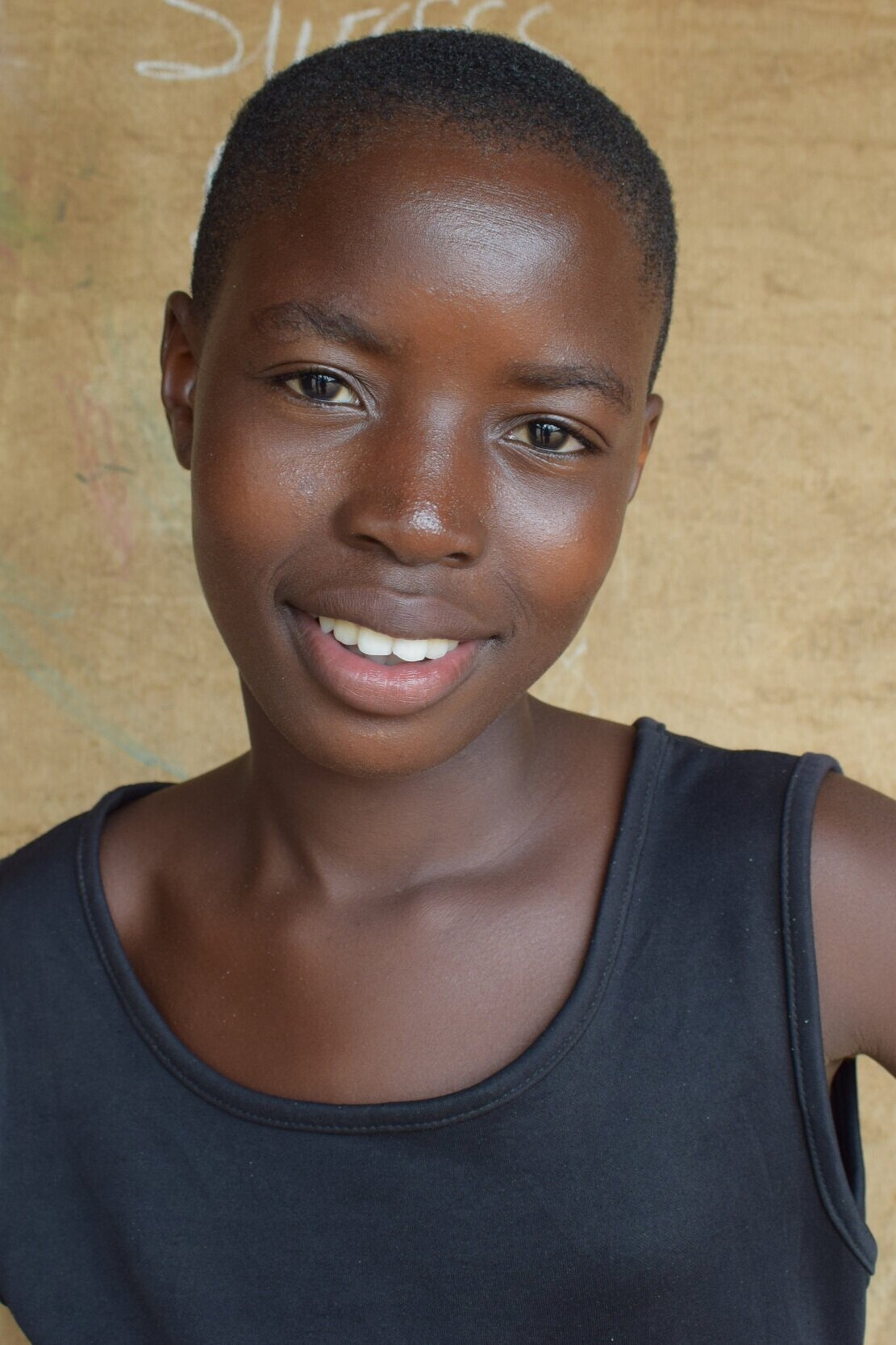
“What I know about Mercy Project is... you help build futures.”

